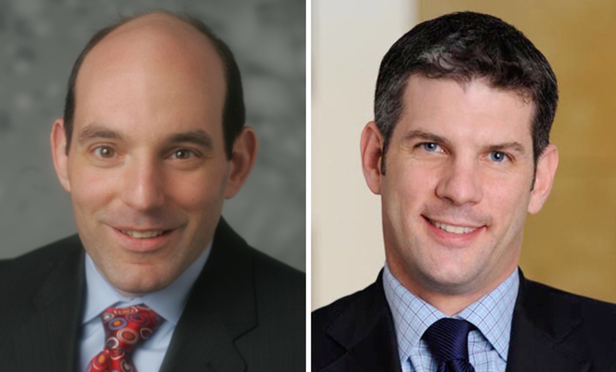Joshua Sohn

March 08, 2024 | New York Law Journal
Our Understanding of Memory Has Changed, the Rules of Evidence Have NotIt isn't news that eyewitness testimony is sometimes inaccurate. What might be news, however, is that significant research makes plain that it is often wrong, even when the eyewitness believes they are telling the truth. Lawyers and courts should reconsider how the rules of evidence treat eyewitness testimony.
By Joshua Sohn and Jacob Zucker
9 minute read

October 14, 2016 | New York Law Journal
Employers Should Not Thwart Whistleblower AwardsJoshua Sohn and Shauneida Navarrete, of Watson Farley & Williams, take note of two recent orders of the SEC signaling that it is paying particular attention to attempts by companies to prevent former employees from whistleblowing and reporting securities violations through restrictive covenants contained in severance agreements. These agreements do not prevent an employee from contacting a government agency, but effectively remove the financial incentives for doing so.
By Joshua Sohn and Shauneida Navarrete
12 minute read

May 21, 2014 | New York Law Journal
Knowledge Qualifiers in Loan RepresentationsIn their Financing column, Jason R. Goldstein and Joshua Sohn of DLA Piper discuss the legal protections and risks afforded by representations in complex loan agreements and any related qualifications in transactional matters.
By Jason R. Goldstein and Joshua Sohn
11 minute read

November 20, 2013 | New York Law Journal
Punishing 'Bad Behavior': When Non-Recourse Becomes Full RecourseIn their Financing column, Joshua Sohn and Jason Goldstein of DLA Piper, focuses on some recent cases in New York and other states that are informative to a current understanding of the ability of lenders to enforce non-recourse carve-out guarantees.
By Joshua Sohn and Jason Goldstein
12 minute read

January 16, 2013 | New York Law Journal
Not So Fast: Equitable Arguments Slow ForeclosuresIn their Financing column, Joshua Sohn and Jason Goldstein, members of DLA Piper, write that two new cases concerning disputes between senior lenders and mezzanine lenders suggest that the general principle that New York courts will strictly enforce arms-length commercial real estate agreements may not be quite the hard-and-fast rule that many expect it to be.
By Joshua Sohn and Jason Goldstein
11 minute read
September 18, 2013 | New York Law Journal
Clearing the Confusion: Misplaced Notes and AllongesIn their Financing column, DLA Piper's Jeffrey B. Steiner, Jason R. Goldstein and Joshua Sohn write: Defendants in foreclosure proceedings often challenge the lenders' standing to enforce a promissory note, demanding that lenders demonstrate physical possession of the note to initiate a foreclosure despite the fact that physical possession is not required by the law.
By Jeffrey B. Steiner, Jason R. Goldstein and Joshua Sohn
11 minute read
November 21, 2012 | New York Law Journal
Shape Up or Receivership OutIn their Financing column, Joshua Sohn and Jason Goldstein, members of DLA Piper, analyze a recent decision out of the Southern District that suggests a new approach to receiverships and recognizes certain challenges lenders face in the current economic climate.
By Joshua Sohn and Jason Goldstein
13 minute read

May 15, 2013 | New York Law Journal
Expressions of Insolvency May Trigger Recourse LiabilityIn their Financing column, Jason Goldstein and Joshua Sohn, members of DLA Piper, write that in the current commercial real estate finance market, many loans are "non-recourse" to the borrower and its sponsors, so if a borrower defaults on its loan, neither the borrower nor its sponsor are liable for the balance of the debt after the lender has exercised its remedies and recovered all of the assets of the borrower.
By Jason Goldstein and Joshua Sohn
11 minute read
July 07, 2008 | New York Law Journal
When Is Insider Trading Subject To Criminal Prosecution?Douglas Rappaport and Joshua Sohn, partners at DLA Piper US, and Neha Dewan, an associate at the firm, write that both the legal and financial press prove front-page coverage detailing the nefarious schemes of alleged insider-traders, detailing the risk of criminal prosecution faced by virtually anyone who trades in violation of the federal securities laws. These stories and cases, however, often fail to address the factors that determine whether a particular scheme will be prosecuted criminally as well as civilly.
By Douglas Rappaport, Joshua Sohn and Neha Dewan
14 minute read
Trending Stories
- 1Varsity Brands Lures Aboard Keurig Dr. Pepper Legal Chief
- 2Federal Judge Warns of 'Serious Sanctions' on FDIC Over Document Retention
- 3Meet the Former NFL Player Now Back at Vinson & Elkins
- 4Inside Track: Cooley's Modest Proposal to Make Executives Safer
- 5Justified Termination Does Not Bar Associate Attorney From Unemployment Benefits, State Appellate Court Rules



